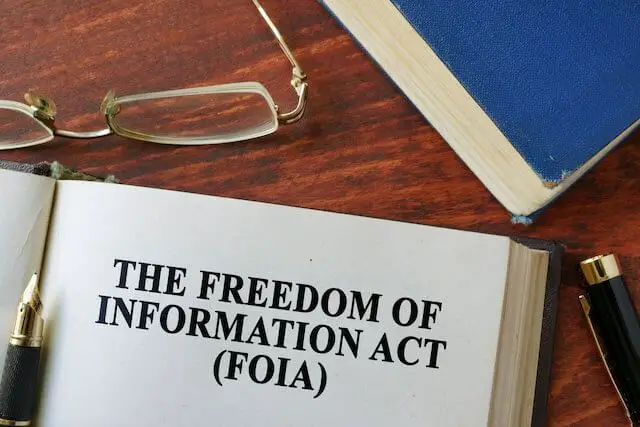Judicial Watch (JW) is a non-profit government watchdog that, among other things, keeps an eye on cost and appropriateness of Federal executive travel. JW uses the Freedom of Information Act (FOIA) to get information from various agencies so it can compile and publicly report this travel information.
In recent years, the Secret Service consistently has failed to respond or to timely release documents, forcing JW to sue several times. Each time, the Service produced the records months after the lawsuit was filed, thus mooting the litigation.
In late 2015, once again JW had to file a lawsuit when Secret Service followed this same pattern. In Judicial Watch, Inc v U.S. Department of Homeland Security (CADC No. 16-5339, 7/17/18), the JW also requested an injunction ordering Secret Service to comply with FOIA and to promptly release records. JW pointed to a “policy and practice of violating FOIA’s procedural requirements.” (Opinion p. 2)
Four months later, on cue, Secret Service produced the records, “much as it had done on the five prior occasions when Judicial Watch had sued…” (p. 2) The district court dismissed the case as moot and dismissed the request for an injunction.
This time, however, the appeals court has apparently run out of patience. It reversed and remanded the JW request for an injunction. (p. 3)
The opinion sets out the obligations of federal agencies under FOIA. It’s a good tutorial for those readers who want to review those obligations.
Here’s the short recap: agencies have a month to decide on its compliance with the FOIA request, shall immediately notify the requester of its decision, may extend the response time two weeks in “unusual circumstances,” and shall tell the requester if more time is needed. If a request is ignored or denied, there is an “appeal” to the agency head, and then to district court.
As the appeals court notes, this process reflects “a general philosophy of full agency disclosure unless information is exempted under clearly delineated statutory language.” The court adds, “FOIA seeks to permit access to official information long shielded unnecessarily from public view and attempts to create a judicially enforceable public right to secure such information from possibly unwilling official hands.’” (p. 5)
The appeals court goes on to recount the unacceptable conduct of Secret Service in its responses to JW—or perhaps the better term is “lack of responses.” Secret Service assigned tracking numbers to the requests and then essentially did nothing, forcing JW to sue each and every time. “The repeated, prolonged, and unexplained delays have prevented Judicial Watch from gathering complete records…[thus] violating FOIA.” (p. 7)
JW’s request for an order requiring Secret Service to comply with FOIA on future requests cited “circumstances in which prolonged delay in making information available or unacceptably onerous opportunities for viewing disclosed information require judicial intervention.” The appeals court now finds that Secret Service has “a policy or practice of ignoring FOIA’s requirements: Given the Secret Service’s repeated, prolonged, and as yet unexplained delays in making requested non-exempt records available…[there is] the reasonable inference that the Secret Service has adopted a practice of delay…by repeatedly standing mute over a prolonged period of time and using Judicial Watch’s filing of a lawsuit as an organizing tool for setting its response priorities.” (pp. 16-17)
In what should be a cautionary tale for other federal agencies tempted to force lawsuits, the appeals court has made clear it will not tolerate this informal practice and that it is the job of the district court to see to it that an appropriate remedy is put in place, stating, “The district court is no less obligated to determine upon a well-pleaded complaint that an agency has organized its records management systems to enable prompt determinations to produce records or to invoke an exemption, and to monitor when necessary an agency’s progress in adjusting its records management systems to enable it to comply with FOIA.” (p. 22)



